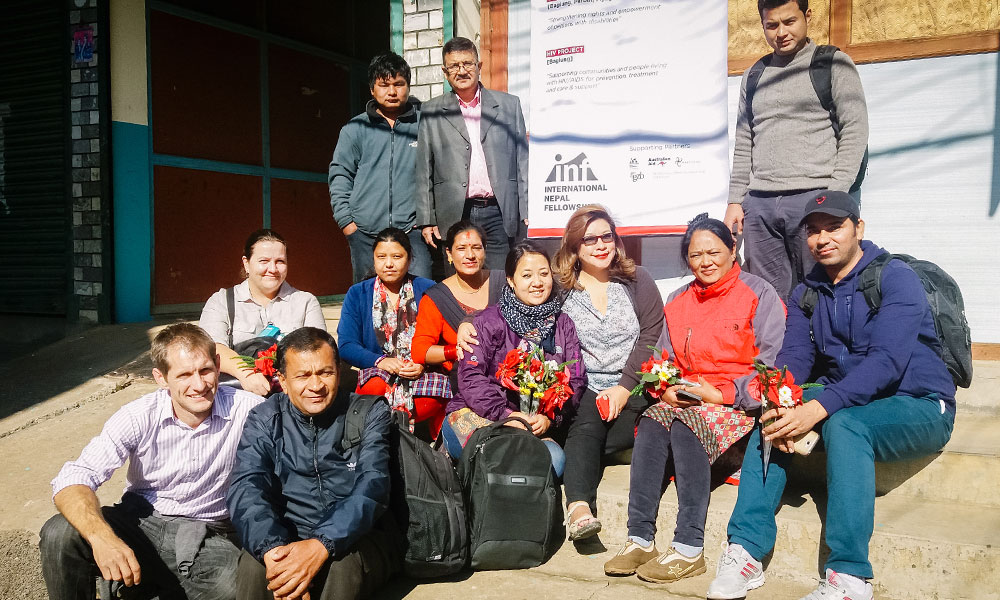With the International Day of People with Disabilities just passed [3 December], it was a timely visit by the Australian Government [Department of Foreign Affairs and Trade[DFAT]] to see INF’s Community Based Rehabilitation [CBR] work in action.
Together with INF staff and INF Australia CEO, Phil Morris, DFAT officials took field visits to the Baglung, Myagdi and Parbat Districts in central Nepal to see how INF’s CBR work is empowering people living with disabilities to take an active part in their society.
Esther Gurung, from INF’s funding team, escorted the team and realises the importance of this visit to see the work firsthand.
“The projects receive funding from the Australian Government through Tear Australia and INF Australia, and the Australian Government team came to this CBR project to see for themselves the work of INF Nepal,” says Esther.
“The outcome of the monitoring visit was very fruitful. DFAT were highly impressed by the efficiency of INF, not just in terms of forming Disabled Peoples’ Organisations [DPOs], Self-Help Groups [SHGs] and giving Primary Rehabilitation Training in health posts, but also in observing how lives have been changed through INF’s intervention in the communities. We visited different DPO offices and saw their confidence in what they do to empower people in their communities. We also visited SHG members and were able to see the impact in peoples’ lives through INF.
“The work of INF is highly recognised by local government authorities and community people because of INF’s values and the effort we give to the poor and more disadvantaged people we serve. This is what brings joy to our hearts.”
Phil Morris says, “As we met with people involved with this project, we heard the same story again and again: previously, as people with disability, they had no hope and no opportunities. However, INF provided rehabilitation and helped people to get mobile, helped them to access local government allowances and generate income from small businesses.
“But most importantly, through these activities they gained confidence and respect from their communities, and hope for the future.”
People with disability will always be at a disadvantage in rural Nepal, but this project shows that sustainable change is possible, and that they can be an example to those around them.
“I want to thank INF Nepal’s team who serve with great skill and patience.”



